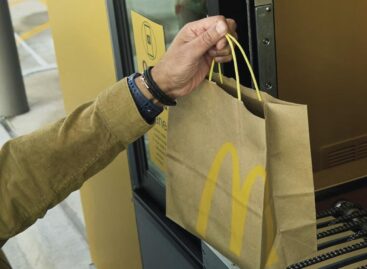Edible spoons and the ecological footprint
Indian company Bakeys manufactures edible cutlery with manual work, in large quantities. The company’s owner says that if they could produce in even larger quantity, spoons would cost less than plastic spoons (at the moment 100 spoons cost USD 4). If just 1 percent of the world’s plastic cutlery would be replaced with edible cutlery, the culinary sector’s ecological footprint would reduce considerably.
We asked Dániel Kiss O’Shea, creative chef of Budapest Party Service about this issue. He told that if the customer wants it, they can probably source edible tableware and cutlery, but it wouldn’t be easy. He sees the biggest potential in rice paper cups and plates. As for cutlery, he reckons that if the customer wishes to do something for the environment, he would recommend recycled paper spoons and forks.
Related news
Related news
Hello, who ordered the hamburger?
🎧 Hallgasd a cikket: Lejátszás Szünet Folytatás Leállítás Nyelv: Auto…
Read more >(HU) Faragta, faragta, amíg faraghatta… – A nap képe
🎧 Hallgasd a cikket: Lejátszás Szünet Folytatás Leállítás Nyelv: Auto…
Read more >(HU) Kétmilliós nézettségű videó a borászat FB-oldalán – A nap videója
🎧 Hallgasd a cikket: Lejátszás Szünet Folytatás Leállítás Nyelv: Auto…
Read more >






